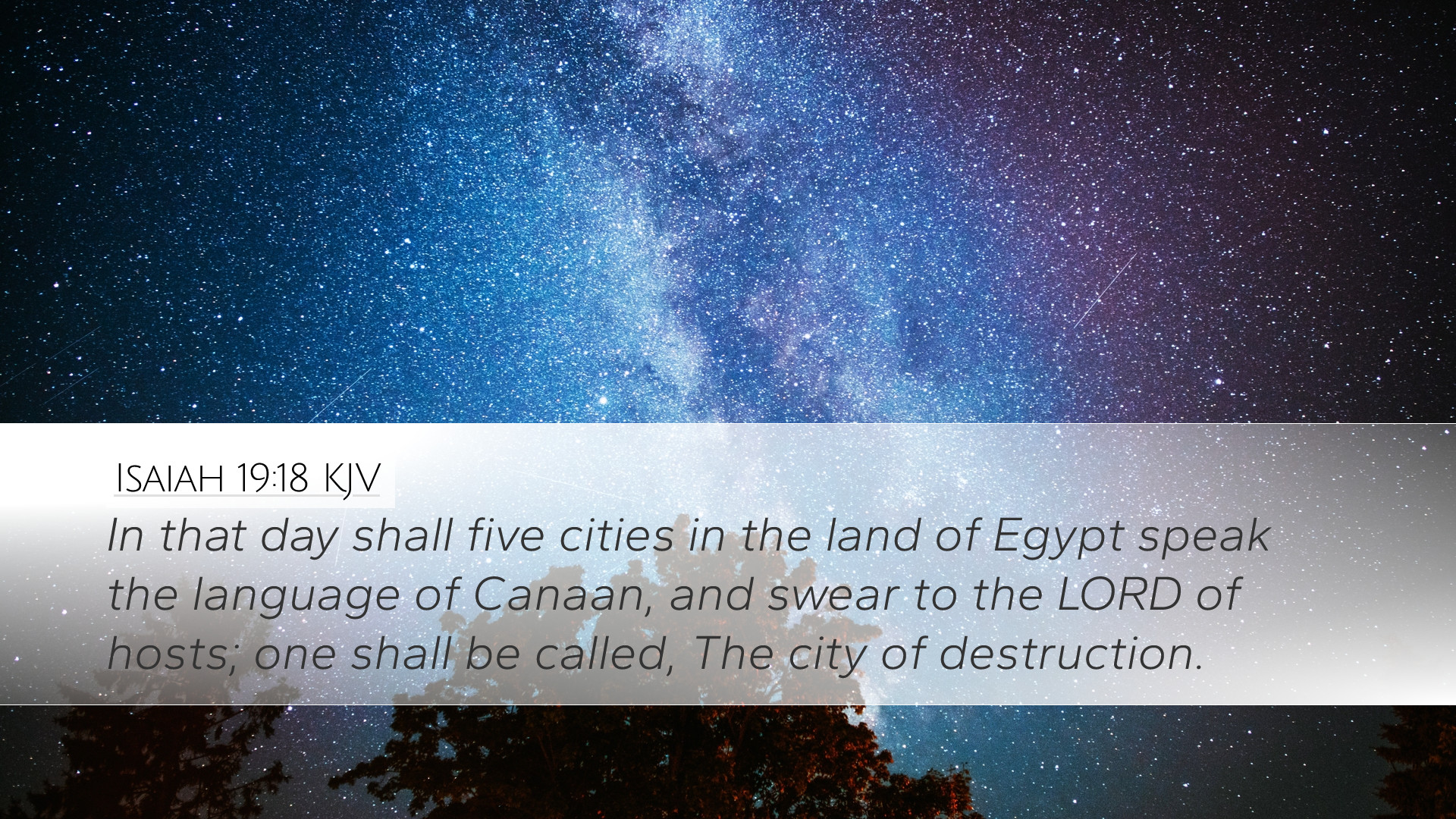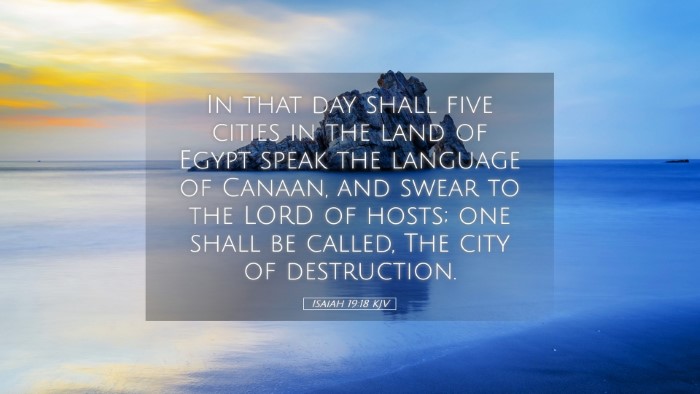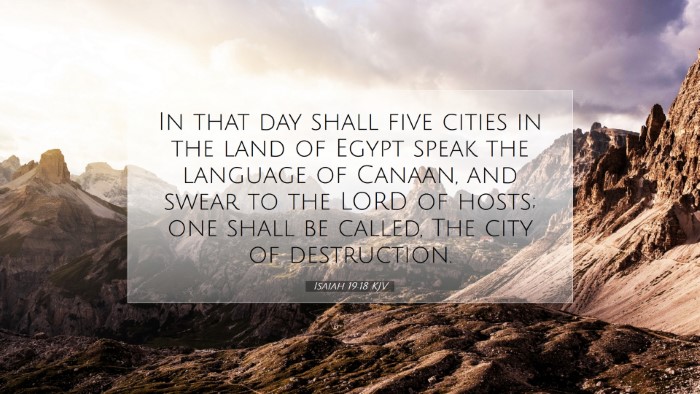Commentary on Isaiah 19:18
Isaiah 19:18 states: "In that day shall five cities in the land of Egypt speak the language of Canaan, and swear to the Lord of hosts; one shall be called, The city of destruction." This verse presents a captivating vision of transformation and redemption among the people and places traditionally seen as distinct from God’s purposes.
Contextual Overview
This chapter of Isaiah is set against the backdrop of God’s judgment upon Egypt, emphasizing both their coming troubles and the eventual restoration of their people. The term “in that day” signifies a future time of divine intervention and renewal. The mention of “five cities” symbolically represents a complete or significant number, signifying various regions of Egypt united under the banner of faith.
The Significance of Language and Worship
The reference to these cities "speaking the language of Canaan" points to a profound cultural and spiritual shift. This transition signifies more than mere linguistic change; it heralds a period where the Gentiles, specifically the Egyptians in this context, openly acknowledge the sovereignty of the God of Israel.
- Matthew Henry: He emphasizes that this changing of language represents a conversion of the heart and mind. The Egyptians, who previously worshipped idols, will begin to worship the true God and adopt the language of His covenant people.
- Albert Barnes: He expounds on the idea that this event showcases God's grace reaching out to the nations, illustrating a time when God brings assurance that even historic enemies can become His people.
- Adam Clarke: Clarke provides insight into the identity of the "city of destruction," interpreting it as a metaphor for the loss of former pagan identities and the emergence of new faithfulness to Yahweh.
The Implications of Swearing Allegiance
The act of swearing to the Lord of hosts signifies not only an acknowledgment of God’s power but also a public declaration of loyalty and commitment. This overt act of faith embodies several key themes:
- Restoration: The promise of restoration indicates that God is not merely a God of judgment but also of mercy. This restoration is pivotal for understanding the nature of God as both transcendent and immanent.
- Universalism: This prophetic assertion implies the universality of God’s sovereignty—that His promises extend beyond Israel to all nations.
- Cultural Integration: The transition to utilizing the language of Canaan signals a profound cultural integration, highlighting that God's redemptive plan includes the transformation of culture as well as individuals.
Application for Modern Believers
This prophetic vision of Egypt foreshadows the New Covenant reality described in the New Testament, where people from every nation are called to worship God in spirit and truth. Pastors and theologians can draw several applications:
- Inclusion: The passage challenges modern followers of Christ to embrace inclusivity, recognizing that the Gospel transcends ethnic and cultural barriers.
- Transformation: Just as the Egyptians were transformed from idolatry to worship, believers are called to undergo a similar transformative process in their lives, moving from worldly pursuits to divine allegiance.
- Witness: The manner in which the Egyptians publicly declare their allegiance serves as a model for contemporary believers to share their faith boldly within their communities.
Conclusion
Isaiah 19:18 serves as a powerful affirmation of hope and renewal. The promise that even nations historically at odds with God can find redemption underscores the unfathomable breadth of His mercy and love. This vision calls on all believers to celebrate the encompassing reach of God's salvation and challenges us to participate actively in the fulfillment of His promises.


